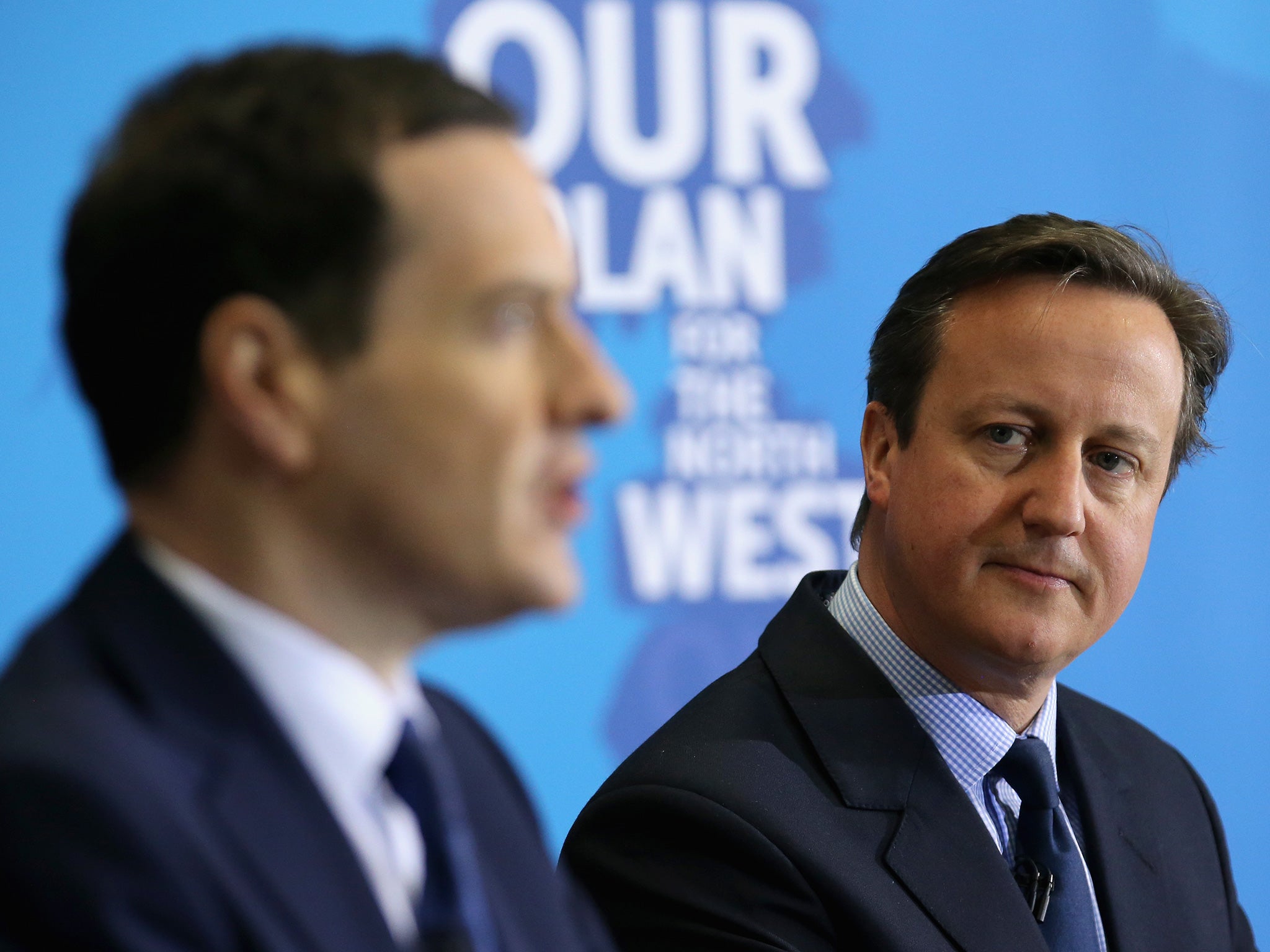The charts that show how much each benefit costs and which are most in danger of George Osborne and David Cameron's £12bn axe
PM signalled the £30bn tax credits budget would be under threat when the Chancellor announces more details in next month's budget

Your support helps us to tell the story
From reproductive rights to climate change to Big Tech, The Independent is on the ground when the story is developing. Whether it's investigating the financials of Elon Musk's pro-Trump PAC or producing our latest documentary, 'The A Word', which shines a light on the American women fighting for reproductive rights, we know how important it is to parse out the facts from the messaging.
At such a critical moment in US history, we need reporters on the ground. Your donation allows us to keep sending journalists to speak to both sides of the story.
The Independent is trusted by Americans across the entire political spectrum. And unlike many other quality news outlets, we choose not to lock Americans out of our reporting and analysis with paywalls. We believe quality journalism should be available to everyone, paid for by those who can afford it.
Your support makes all the difference.The total welfare bill is a staggering £220bn - around 30 per cent of all public spending.
The Conservative government has confirmed its intention to go ahead with £12bn of cuts to welfare but has yet to spell out the details - we will have to wait until next month's budget and possibly even the spending review in the autumn to find out exactly where the axe will fall.
The £12bn figure may only represent 5 per cent of the overall welfare bill but large chunks have been protected, such as the £95bn spent on state pensions and universal pensioner benefits, which together account for more than 40 per cent of the budget.
Add the £12bn of child benefits that has also been protected, and we are left with around £112bn to play with.
There are three main areas of spending that are vulnerable to cuts: £30bn of tax credits, £26bn in housing benefit and £22bn of disability benefits. So 35 per cent of the welfare budget is likely to carry the burden of the £12bn of Iain Duncan Smith's welfare cuts.
The Tories have already outlined a small part of where they intend to cut, which the Institute for Fiscal Studies says will total about £1.5bn. These include cutting the benefit cap from £26,000 to £23,000 and removing housing benefit and Jobseekers' Allowance to those under the age of 21.
But the vast bulk of the £12bn in cuts have yet to be outlined and today the Prime Minister heavily hinted that the £30bn of tax credits could carry a large prat of the burden.
Recent reports have suggested that this area of the welfare bill could contribute to as much as £5bn.
He insisted Britain must stop the "merry-go-round" of handing benefits to those in work, attacking the system introduced by Tony Blair’s Labour government whereby lower paid workers pay their taxes but then receive the same amount – and sometimes more – back in welfare.
Join our commenting forum
Join thought-provoking conversations, follow other Independent readers and see their replies
Comments